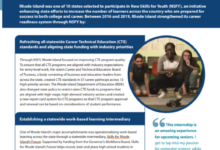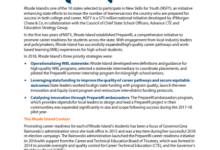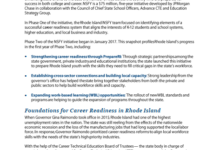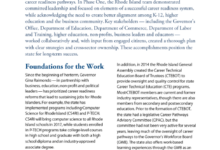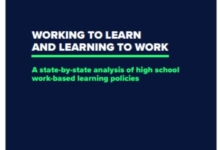This brief looks at how states are improving equitable access to work-based learning (WBL). The states in the NGA Center’s Policy Academy on Scaling Work-Based Learning convened monthly from December 2020 through May 2021 to share strategies for ensuring equitable access to and success in WBL. This brief highlights best practices that were not only essential for the stability of WBL programs during the pandemic but are key pillars for scaling equitable WBL systems.
The economic and societal instability brought on by the COVID-19 pandemic compounded and laid bare the inequities in American education and workforce systems. It also forced policymakers to go to extraordinary lengths to ensure that programs remained accessible. This brief highlights best practices and provides state examples of implementation of the best practices.
The following best practices were identified as the pillars for scaling equitable work-based learning systems:
- Place equity at the center of Perkins V plans to strengthen career and technical education in the states.
- Integrate work-based learning achievement into statewide postsecondary attainment goals.
- Build the capacity to collect and disaggregate student outcomes.
Examples of state implementation strategies are provided from Rhode Island, Alabama, and Washington State.

